5 Reasons to Shred Your Own Cheese
This post may contain affiliate or sponsored links. Please read our disclosure policy.
When it comes to convenience, store bought pre-shredded cheese is hard to beat. However, there are several reasons why you might want to consider shredding your own cheese at home. From flavor and texture to health benefits and cost savings, here are some of the top reasons to take that extra step.
1. Better Flavor
One of the most significant advantages of shredding your own cheese is the superior flavor. Pre-shredded cheese often contains additives like cellulose (a plant fiber) to prevent clumping and to keep the cheese from sticking together.
While these additives are safe to consume, they can affect the taste. Freshly shredded cheese, on the other hand, has a richer and more pronounced flavor because it doesn’t contain these anti-caking agents.
2. Fewer Additives
As mentioned earlier, pre-shredded cheese often contains additives to keep it from clumping and to extend its shelf life. While these additives are generally safe, some people prefer to avoid them for dietary reasons.
Shredding your own cheese ensures that you’re consuming a product without any unnecessary additives. This can be particularly important for those with food sensitivities or allergies.
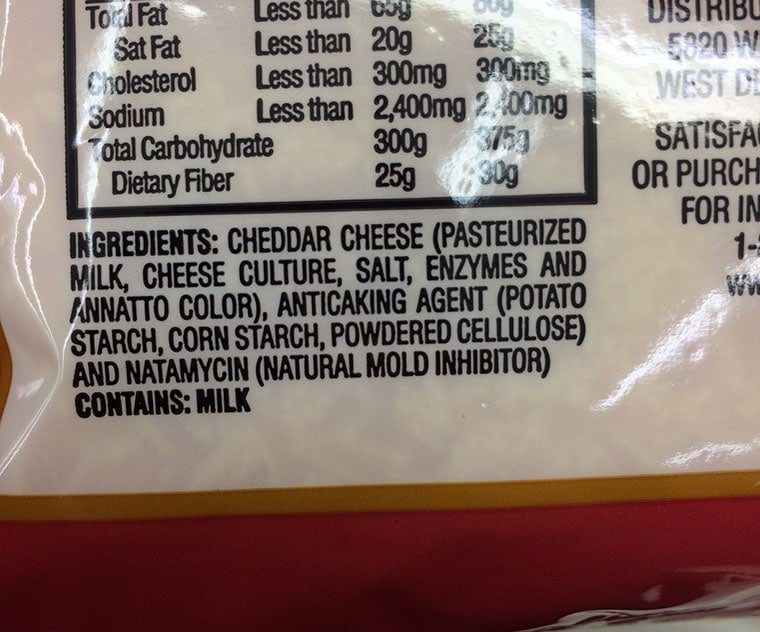
3. Improved Texture
The texture of freshly shredded cheese is another reason to consider doing it yourself. Pre-shredded cheese can have a slightly waxy texture due to the anti-caking agents used.
Freshly shredded cheese is softer, melts more evenly, and creates a creamier consistency in dishes like Mac and Cheese, Stromboli Pizza, or Ground Beef Quesadillas. The difference in texture can be particularly noticeable in recipes where the cheese plays a starring role.

4. Cost Savings
Buying a block of cheese and shredding it yourself can be more cost-effective than purchasing pre-shredded cheese.
Cheese blocks are often sold at a lower price per pound compared to their shredded counterparts. Additionally, you get more cheese for your money since pre-shredded cheese is often sold in smaller quantities. Over time, these savings can add up, especially if you use a lot of cheese in your cooking.
5. Longer Shelf Life
A block of cheese generally has a longer shelf life compared to pre-shredded cheese.
Once cheese is shredded, it is exposed to more air, which can cause it to spoil faster. By keeping the cheese in block form until you’re ready to use it, you can help preserve its freshness and reduce food waste.
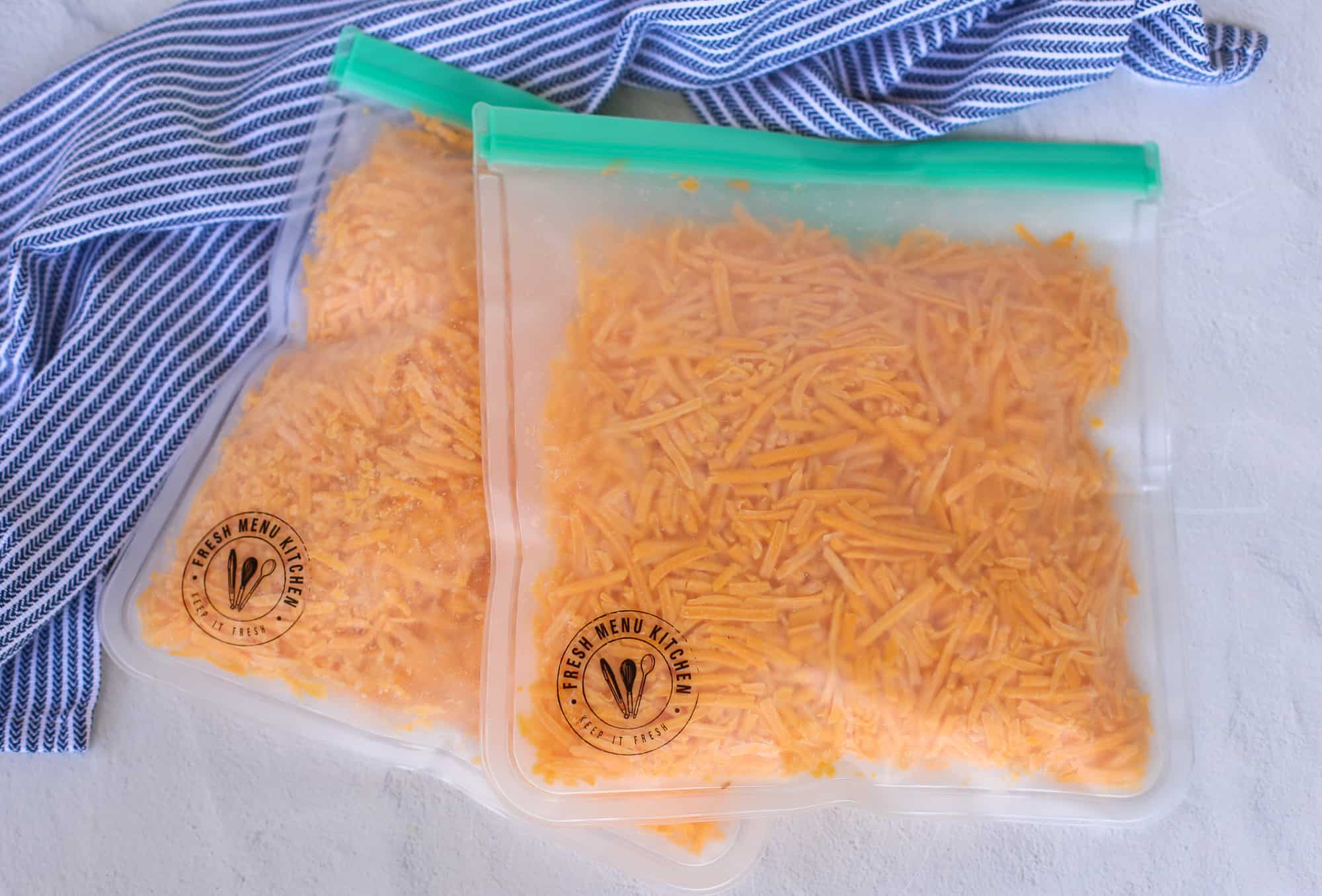
How to Shred and Store Cheese
I’ll be honest, I’m not a huge fan of manually shredding large amounts of cheese. I mean, who is? It gives you hand cramps, tired arms, and shredded skin if you start getting sloppy.
This is why it is critical that you know how to shred cheese with a food processor. Most food processors come with a handy-dandy attachment that will shred a block of cheese in seconds. I use this same attachment when freezing shredded zucchini or making our Roasted Vegetable Hash.
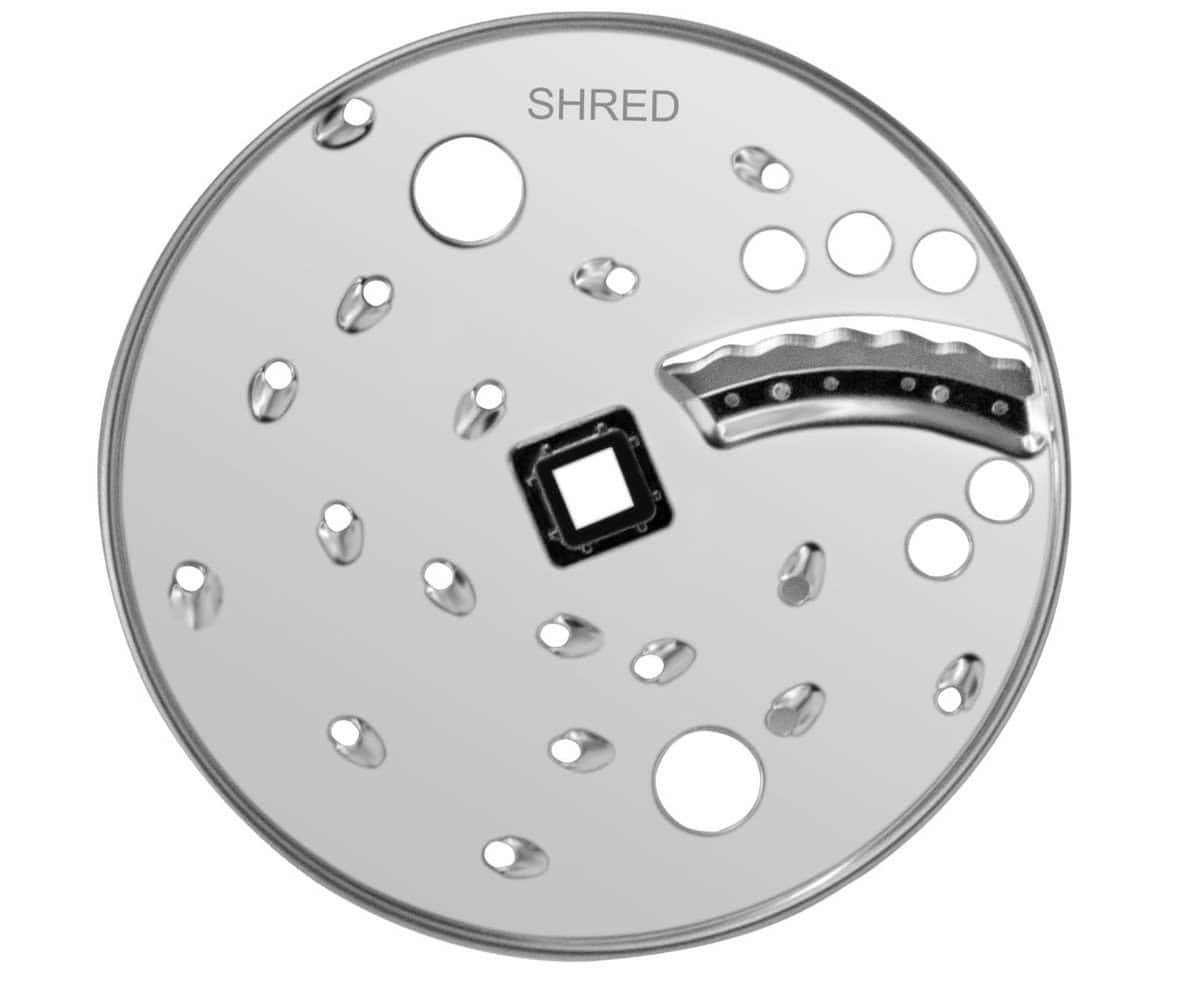
Can You Freeze Shredded Cheese?
Yes, shredded cheese freezes very well.
How to Prep and Freeze Shredded Cheese
- Divide the shredded cheese into portions that you typically use in recipes. This makes it easier to thaw only what you need. I prefer 2-cup portions.
- Place the shredded cheese in airtight freezer bags or containers. Squeeze out as much air as possible to prevent freezer burn.
- Freeze for up to 6 months (or longer if packaged well).
Thawing and Using Frozen Shredded Cheese
- Thaw in the Refrigerator:
- For best results, thaw the cheese in the refrigerator. This allows it to thaw gradually and maintain its texture.
- Place the bag or container in the fridge a few hours or overnight before you plan to use the cheese.
- Use Directly from the Freezer:
- For some recipes, such as casseroles, pizzas, or other baked pasta dishes, you can use the shredded cheese directly from the freezer without thawing. It may take a bit longer to melt, but it will work just fine.
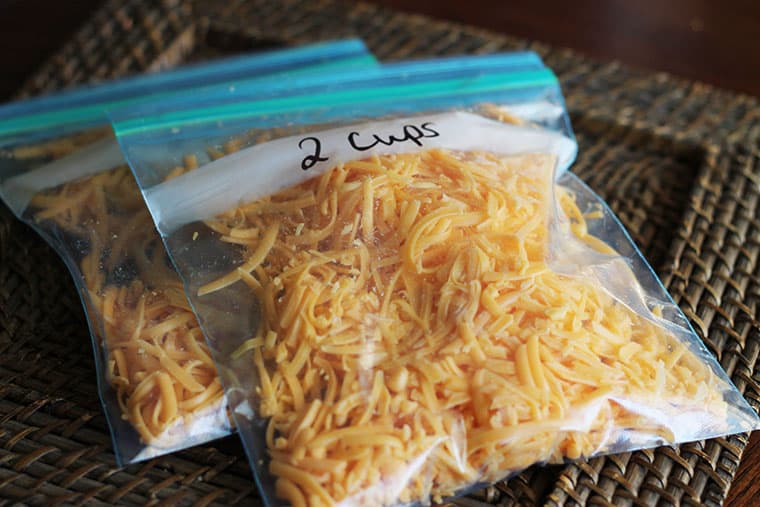
FAQs
Hard and semi-hard cheeses like cheddar, mozzarella, Monterey Jack, provolone, and Parmesan are ideal for shredding. Softer cheeses can be shredded but may require a different approach or special equipment.
Yes, you can freeze shredded cheese. Place the shredded cheese in airtight freezer bags or containers, label them with the date, and use within two to six months for the best quality.
Shredding cheese does not affect its nutritional value. However, pre-shredded cheese may contain additives like anti-caking agents that freshly shredded cheese does not.
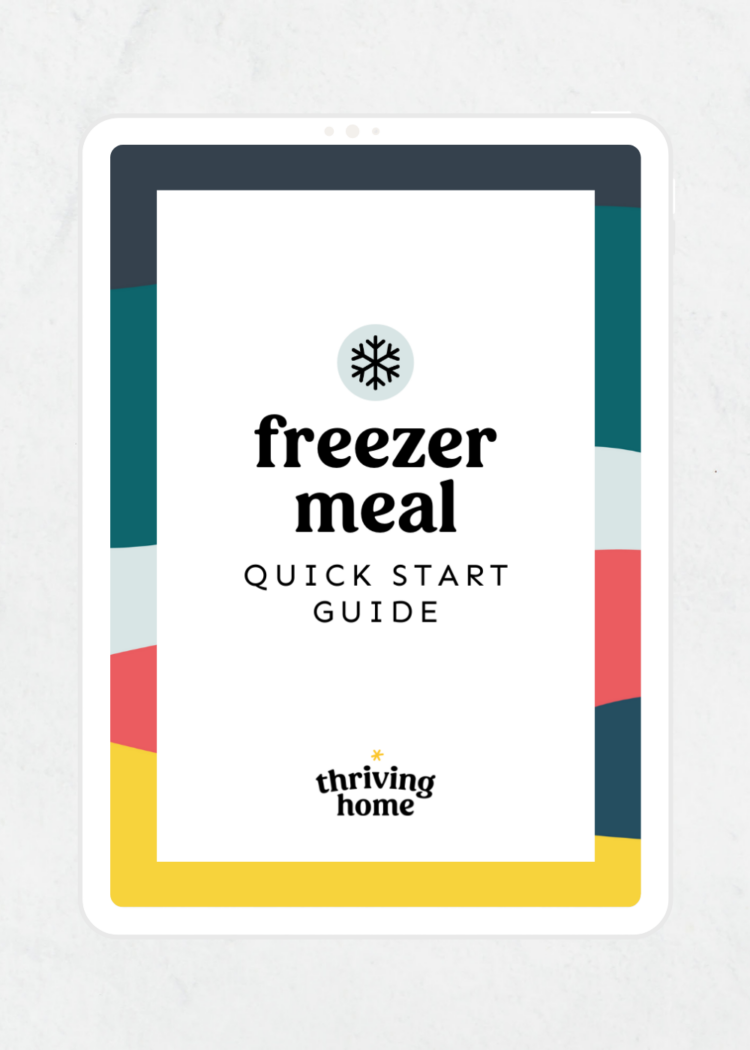

What type of food processor did you use and what brand of mozzarella. I was told mozzarella can’t be done but you did . Thank you
Hi Carole. We have all had a few food processors over the years of various brands. Polly uses a Cuisinart 11-cup. You can find our affiliate link to it under the Shop dropdown on our homepage – and then Shop Our Favorites. I have personally not shredded mozzarella, but Polly has. She says it can get a little globby towards the end, but it should work. She also recommended to another reader to freeze in a single layer to avoid clumps. I hope this helps!
HI! I think the only reason why I purchase already shredded cheese because it does not clump up. How can you avoid that with fresh cheese block?
If I’m stocking up on it, I try to spread it out in a single layer. Because it doesn’t have the additives, there will indeed be some clinginess but it can be worked around pretty easily if you don’t store it as a big pile. Hope that helps.
Hello! Thank you so much for the cheese info. I want to start shredding my own regularly, but the last Cheddar cheeses we used to shred and make quesadillas was Soo greasy when cooked… any recommendations o. The best brands to use.. healthier.. Thanks in advance!
I’m not sure what the best brand would be, but you could always look for a reduced fat version if you’re wanting less grease. Not sure if it will melt as well, though.
I agree with points 2 & 3, fresh shredded tastes better, and doesn’t have the additives to prevent clumping.
However, at least in my neck of the woods, a 2 lb bag of pre-shredded runs $2.44, while a 1 lb block is $2.00. (However, when this was posted 3 years ago, maybe that wasn’t the case) 🙂
Probably depends on where you shop too!
I totally agree that shredding your own cheese is best. I have done that for years and years. However, find it crazy that you would grate the entire block – just grate what you need and put the block back into the refrigerator wrapped securely. NOTE Never touch the cheese block with your hands – it will cause mold to grow. Use some plastic wrap to hold the cheese while grating – I use the old fashioned cheese grater.
Thanks for the tip! I didn’t know that.
Well, I have a different school of thought on this. I like to shred all of my cheese at once to save time and dishes. We almost always use it up! I use a cheese grater for small amounts but if I’m wanting a few cups of shredded cheese, the food processor is my best friend!
Thanks for sharing such an informative post. I’m a cheese lover, I can’t wait to try your recipes. Worth reading!
Yes, yes, yes, a thousand times yes. We keep replacing the stuff that Mother Nature put into food with ….. you guessed it! Starch. Simple carbohydrates. You pay more, for less. Convenience foods remove good stuff like fibre and nutrients, and replace it with edible cheapness that cheats us out of quality time making meals with our loved ones.
I remember being “allowed” to shred the cheddar and swiss for my Mom’s Christmas quiche, and thinking it was such a privilege. (Mom was so smart!) Let’s get away from our screens and enjoy our family while we all do meaningful and tasteful work in the kitchen!
Thumbs up to this comment!
The link for Mac N Cheese with Sneaky Sweet Potato recipe links to the recipe above it…can you please email it to me? Thanks!
I love this! I think shredding your own cheese tastes so much better! The other points are always a good bonus as well!